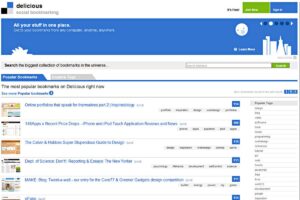A tale of two emails.
Sometimes an email is just an email. Other times, it’s an X ray of someone’s character. Here’s a perfect example of the difference.
Recently, a friend emailed me. He asked if I would forward the résumé of a friend of his to my clients that have intern programs. I did so happily.
Both people I emailed replied within a few hours (after all, they work at PR agencies). Yet while they basically said the same thing — “You’re too late” — the tones they used were strikingly divergent. Here’s what they wrote:
1. “We are full up for this summer (we started reviewing in January as most do) but fall is a possibility. If that works, please apply through website. Thank you.”
2. “Hey Jonathan, thank you for referring [Redacted]. We do have a good intern program. [Redacted], Looks like you’ve been having a good run at [Redacted], congratulations. We have offers out now and should know pretty quickly if we’ll have an opening. If so, I’d be interested in talking with you. Thanks for your interest in [Redacted].”
Think about these two messages the next time you respond to an email. Do you eschew pleasantries, or do you greet your recipient? Are you curt, or are you friendly? Are you impatient, or are you grateful? Do you disregard the document in question, or do you take a minute to peek at it?
Now fast forward 10 years. That potential intern is now a vice president at a Fortune 500 company. He’s looking to hire a PR agency. Which one do you think he’ll contact?
The situation isn’t entirely hypothetical. I still remember when I first came to Washington 15 years ago. I was hungry for a job, and so a friend introduced me to a friend of his at a big lobbying firm. I followed-up, but never heard back.
A few years later, a colleague asked if I knew a lobbyist with connections to the House education committee. Do you think I recommended the guy who had ignored me?
Do you think I’ll refer another intern to client #2 above?
To be sure, how someone emails is not necessarily indicative of their full temperament. I have longtime friends who, based on their emails alone, you’d think would be jerks, yet in person are generous, thoughtful, and kind.
On the other hand, getting to know someone in person isn’t always a practical option. Indeed, I have longtime clients I’ve never met; we stay in touch via email, calls, texts, Slack, and Asana.
Whether this is a good thing or bad can be debated. But the reality is, We live in an electronic world. You are what you email.
The savviest emailers grok this truth: they recognize that email inherently lacks any kind of tone. For example, when face to face with someone, you can cross your arms, furrow your brow, mutter under your breath, raise your voice. With email you have only your written words. So it behooves you to add padding, filler, an emoji — some kind of signal that clarifies your attitude.
Pope Francis is a master at this. Without changing Church doctrine, he’s softened its harder edges. He’s accomplished this by way of a simple trick known to every parent, teacher, and boss in any culture in any corner of the world: By framing the conversation.
As Frank Luntz puts it, “It’s not what you say. It’s what people hear.” And what I heard in that second reply was, “Bug off.”
The bottom line: A little more time now (to write a proper reply) could be worth years of connections later. Is your reputation really not worth an extra 60 seconds?
A version of the above article appeared in PR Daily on May 16, 2018.




